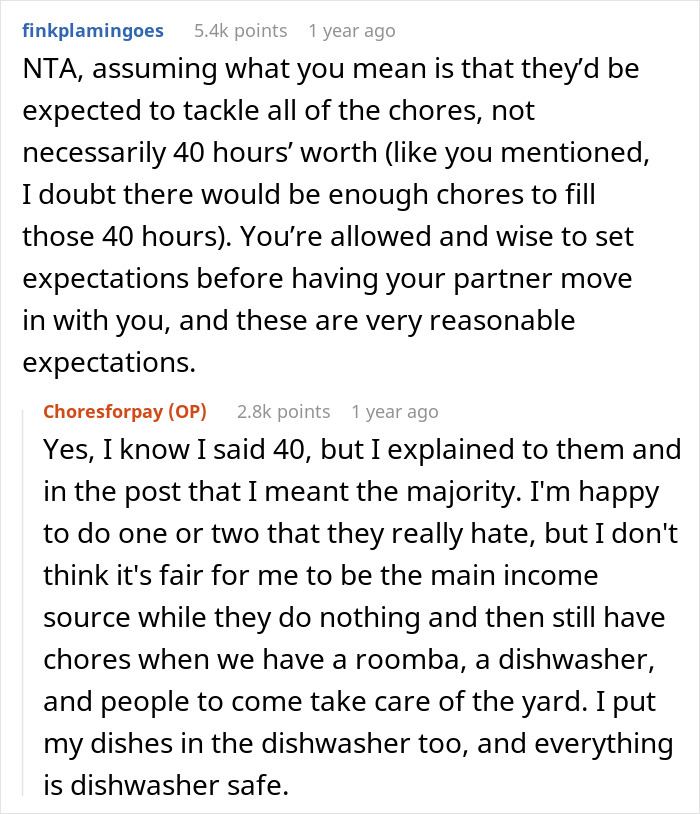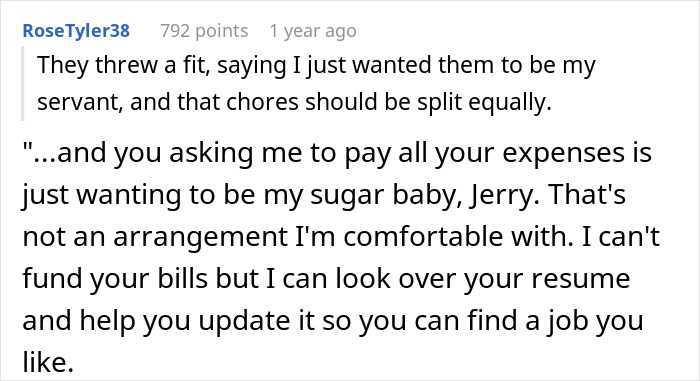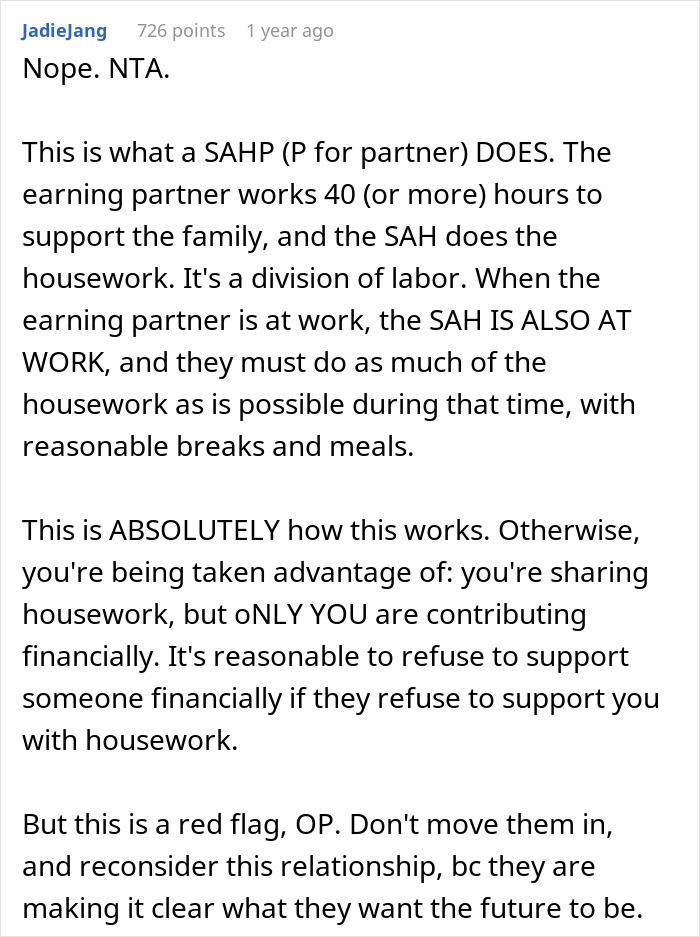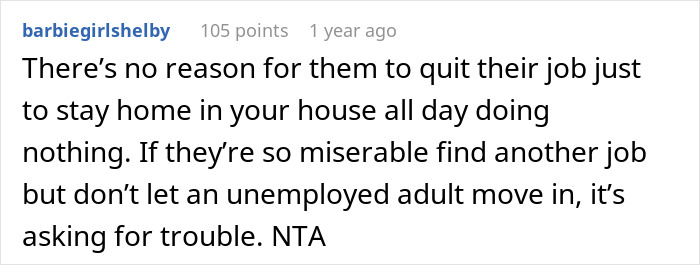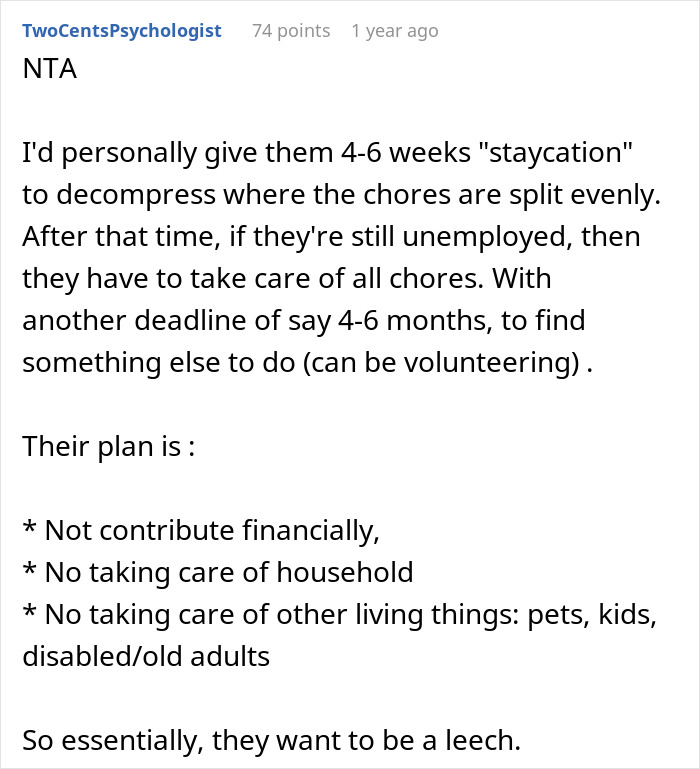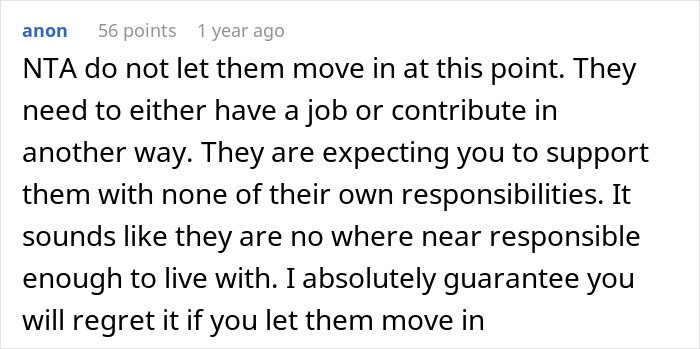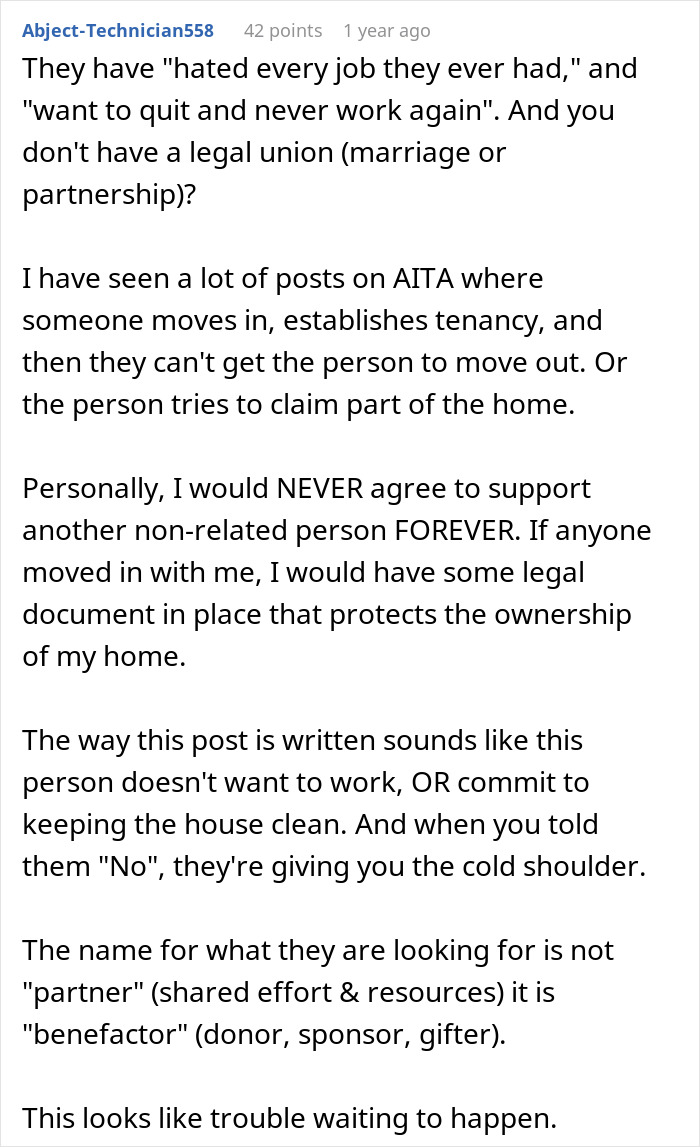If you share your precious living space with a partner, you probably know that to keep the peace, it’s best to divide the housework equally so that one of you doesn’t accidentally fall victim to an unfair division of household labor. But what happens if certain circumstances change? Does this agreement require altering too?
When redditor’s Choresforpay partner considered taking time off work, they were quickly presented with one condition. They were told that if they wanted to move in with them and quit their job, they would have to do most of the housework, which amounted to about 40 hours a week. Unhappy with this ultimatum, the partner refused to be their ‘servant’, causing AITAH drama to ensue.
Scroll down to find the full story and a conversation with sex therapist, relationship counselor, and intimacy expert Dr. Miro Gudelsky, who kindly agreed to answer some of our questions about fairly splitting chores with a partner.
Keeping a fair division of household chores is key to a healthy relationship

Image credits: MART PRODUCTION (not the actual photo)
However, this couple couldn’t agree on it, causing drama to ensue
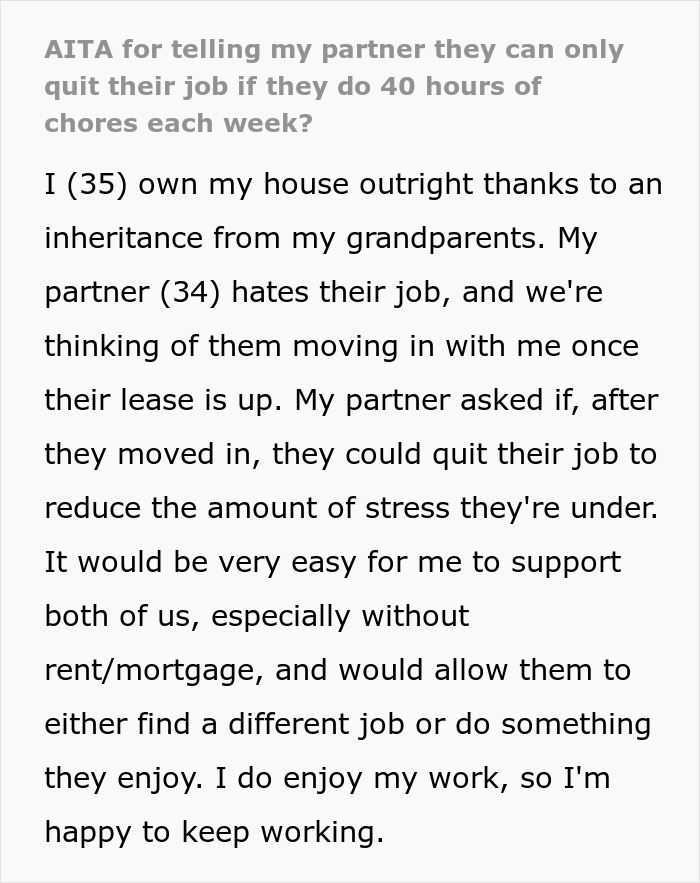
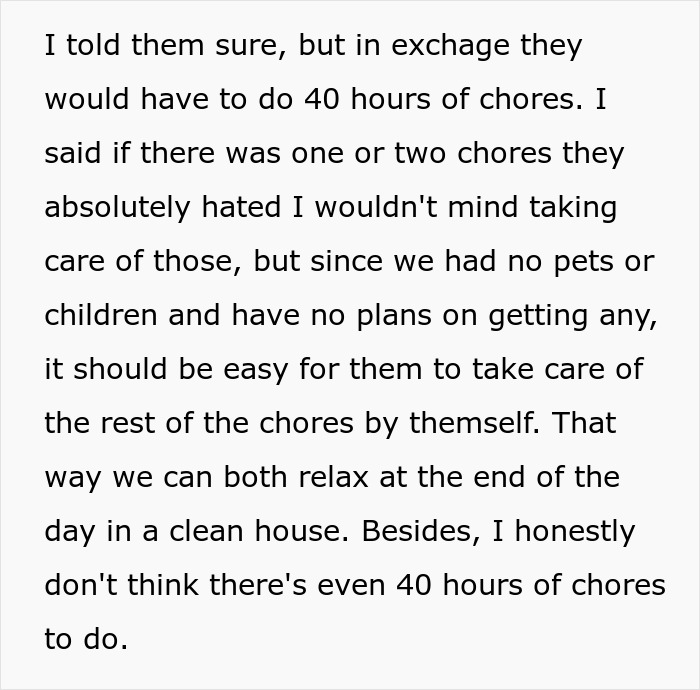

Image credits: Vitaly Gariev (not the actual photo)
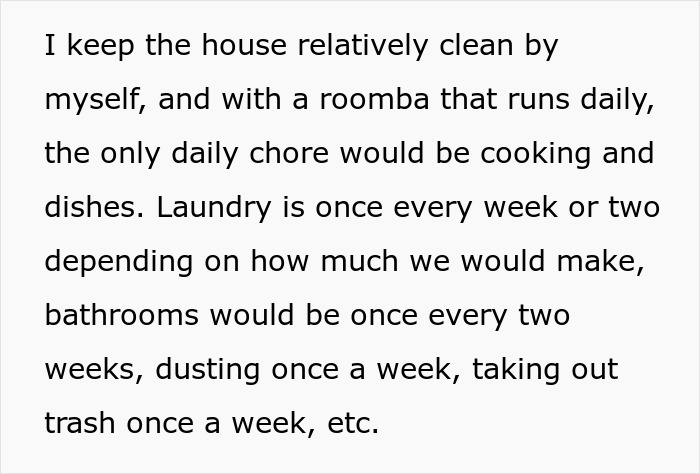
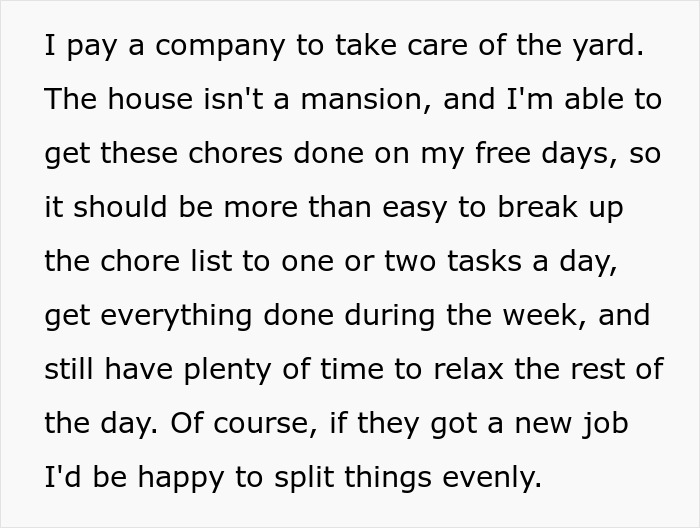
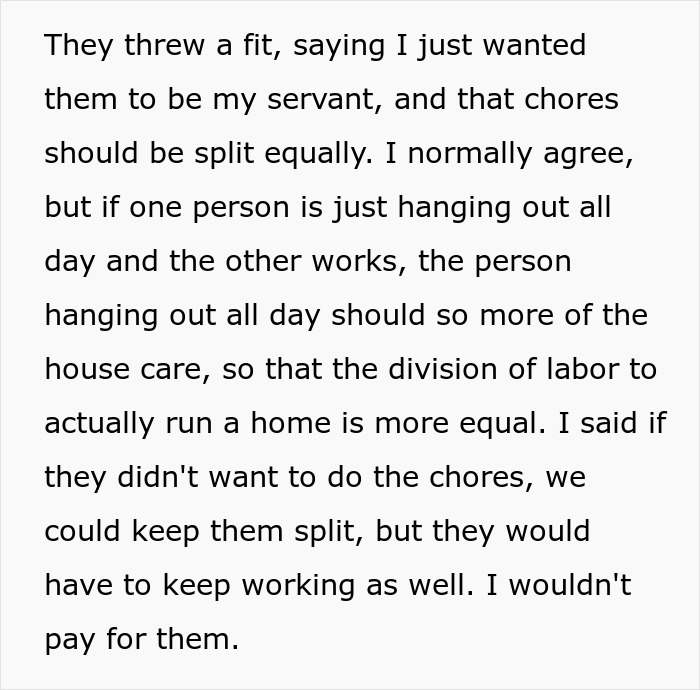

Image credits: Choresforpay
Fairly dividing house chores can help reduce tension and give back precious time to members of the household
Just like the couple in this story, many struggle to split chores equally, as it was found that women do 36 hours of household tasks per week, nine hours more than men, including doing the laundry, cleaning, and cooking.
However, Dr. Miro Gudelsky tells Bored Panda, “It is very important to divide chores up in a way that feels equal and just to everyone in the relationship.” This is definitely possible, which can also help reduce tension at home and give back precious time to each member of the household.
Dr. Miro suggests that “sometimes it is as easy as figuring out what people are better at. One person may be better at planning and making dinners, while the other person doesn’t mind washing the dishes.”
The first thing she suggests that couples do, if there are any issues about this, is to sit down and have an honest and open dialogue with each other. “Figure out what makes you happy in regard to household chores. What annoys you and what you just really don’t want to do? A lot of times, you’ll find out that your partner is very willing to do those things.”
Even if there aren’t any problems surrounding this topic, she recommends allocating some time and having this discussion anyway. “Make sure everyone is on the same page. You don’t want resentment building,” she adds.
Certain circumstances should be considered
Of course, certain circumstances might be considered. Dr. Miro says, “Everyone needs to pull their weight. If one person has a little more time than their partner, then, yes, of course, they should be helping more.
Honestly, it depends on why they’re taking time off work. Are they taking it for health reasons? Then they probably can’t help around the house. For example, if someone is on a physical disability leave, you can’t expect them to be carrying laundry up and down the stairs. If something needs to be done to keep the household running in a manner that pleases everyone involved, then it should just be done by whoever can do it.”
Surprisingly, the fair division of household labor seems to be more common knowledge for same-gender partners, who, according to research, are more successful at splitting their tasks. It was found that same-sex couples tend to share more duties and assign various chores based on personal preference. Meanwhile, straight couples tend to slip back into traditional gender roles, with women being more responsible for household chores.
One explanation for this may stem from the fact that same-sex partners have already broken out of the ‘traditional’ family structure, allowing them to be more creative when it comes to domestic chores. Diversity strategy leader Jennifer Allyn believes that the increasing visibility of same-gender couples and their housework choices could show same-sex partners new ways to divide up household responsibilities.
Commenters titled the author as not wrong
